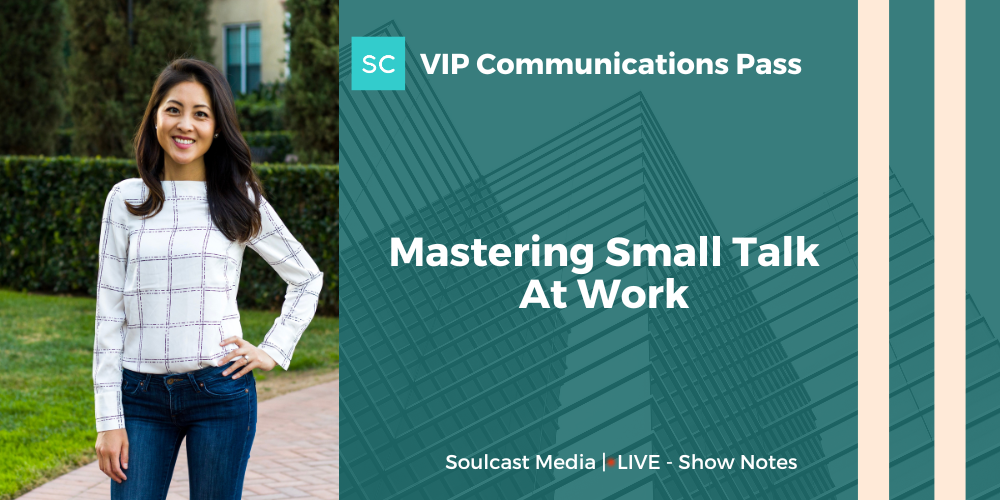4 Ways To Become A More Active Listener
If you want to improve your communication skills, learning how to become a more active listener will help you tremendously. It’s true, listening is key to great communication.
You can learn so much about a person if you simply listen to what they are telling you. If it sounds too simple, it’s because it is!
We’ve found 4 strategies that can help you become a more active listener and improve your communication skills.
1. Body Language
Your body language speaks volumes – especially when you are in a conversation with someone. As you consider your body language keep these things in mind:
- Eye Contact – Make sure you are looking at the person who is speaking. If you aren’t looking at them, it will appear as if you aren’t listening. Or you simply don’t care enough about what they are saying to pay attention. Maintain good eye contact to show you are actively listening.
- Stance – Are you facing the person who is speaking? If you are in a meeting, is your body turned towards them? Be sure to show in your stance that you are pay attention.
- Arms – Are your arms in a relaxed position showing you are open to what the other person is saying? Or are your arms folded indicating that you aren’t open to their thoughts?
- Gestures – Using gestures such as nodding your head will help the other person know you are listening. It will also keep you engaged in what they are saying.
Little changes to your body language will help you show you are actively listening. And your body language will put the person speaking at ease knowing you are open to their message.
2. Avoid Distractions
Part of becoming a more active listener is to set aside whatever you may be doing. You need to focus on the person speaking. In order to do this, you will have to avoid any and all distractions.
 This means putting away your phone. It is so tempting to scroll your social media, or even respond to a text message. However, when you engage in that behavior you are sending a message to the speaker that what they are saying isn’t important to you. And you don’t want to send that message!
This means putting away your phone. It is so tempting to scroll your social media, or even respond to a text message. However, when you engage in that behavior you are sending a message to the speaker that what they are saying isn’t important to you. And you don’t want to send that message!
You will also want to avoid engaging in another discussion when another person is speaking. This is especially true when you are in a meeting. The last thing you want to do is get caught talking to someone while your boss is leading a meeting and calls on you to speak. Not only will you show you weren’t listening, but it also reduces your executive presence.
If you are working in a hybrid model and on a video call you will want to avoid looking at any other websites, or emailing as you listen.
Remember, you want to keep your focus on the person speaking. They can tell if you aren’t really paying attention!
3. Take Notes
Remember when you were in college and you furiously took notes as your professor spoke? Taking notes will help you become a more active listener.
 Not only will taking notes help you remember what the person is saying, but it will also help you jot down any ideas that occur to you as you are listening.
Not only will taking notes help you remember what the person is saying, but it will also help you jot down any ideas that occur to you as you are listening.
Here are a few things to consider as you take notes:
- Questions – As the person is speaking, if any questions pop into your mind, jot them down. Then, when the time is right you can ask. Sometimes, especially during a meeting, you may not be able to ask questions right when it comes to you. However, if you write it down, you will not only remember your question but also the context as to why you are asking.
- Clarity – Did the person speaking say something that didn’t make sense to you. Write down what they said. Then, you can follow up and get more clarification when the time is right.
- Commentary – As you are listening, write down any ideas or questions you may have. Again, you don’t want to interrupt them as they speak. Writing your thoughts down will ensure you can circle back at the appropriate time.
Actively taking notes will help you organize your thoughts and help you respond at the appropriate time.
4. Responding
Yes, responding is part of active listening! However, in order to respond appropriately, you will have to make sure your response acknowledges what the person said.
When it comes time for you to respond to the speaker, it is important you acknowledge them. You can do this two ways.
- Paraphrasing – When you respond to someone, paraphrasing what they said can help ensure you heard the message they were trying to convey. For example, you could say, What I heard you say was and then repeat what they said. This way they feel acknowledged and you ensure you heard them correctly.
- What They Meant – Sometimes what they said and what they meant to say are two different things. This is why learning how to craft your message is so important. If you aren’t sure what the other person means it is important to ask a clarifying question. You could say, You said xyz, is this what you mean? Or, what did you mean when you say xyz?
As you become a more active listener you will be able to respond to the speaker in a thoughtful way. This will make them feel like you value their thoughts and are open to their message.
Becoming a more active listener is a skill you can learn! As you listen, keep in mind your body language and avoid any distractions. Write down notes so that you are able to respond at the appropriate time.
__
Whenever you’re ready, there are 3 ways we can help you:
- Discover your communications style so you know where to start. Over 4,000 people have found theirs here.
- Attend our monthly communication workshop to build communications confidence (new topics: public speaking, advocating for yourself, building credibility, etc) here.
- Get your brand in front of 43k+ people by sponsoring our newsletter or Soulcast Media | LIVE LinkedIn events [contact: hello@soulcastmedia.com]











